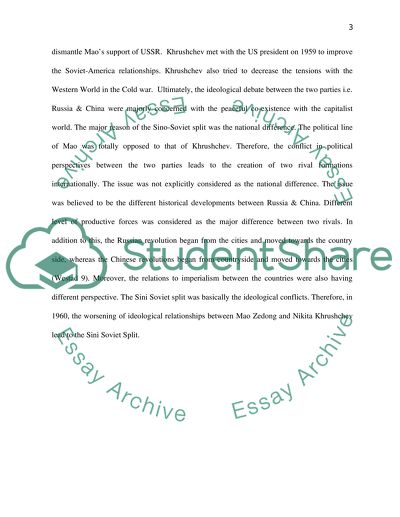Cite this document
(“Ideological Relations between Mao Zedong and Nikita Khrushchev Essay”, n.d.)
Ideological Relations between Mao Zedong and Nikita Khrushchev Essay. Retrieved from https://studentshare.org/history/1498233-how-did-the-worsening-of-ideological-relations
Ideological Relations between Mao Zedong and Nikita Khrushchev Essay. Retrieved from https://studentshare.org/history/1498233-how-did-the-worsening-of-ideological-relations
(Ideological Relations Between Mao Zedong and Nikita Khrushchev Essay)
Ideological Relations Between Mao Zedong and Nikita Khrushchev Essay. https://studentshare.org/history/1498233-how-did-the-worsening-of-ideological-relations.
Ideological Relations Between Mao Zedong and Nikita Khrushchev Essay. https://studentshare.org/history/1498233-how-did-the-worsening-of-ideological-relations.
“Ideological Relations Between Mao Zedong and Nikita Khrushchev Essay”, n.d. https://studentshare.org/history/1498233-how-did-the-worsening-of-ideological-relations.


